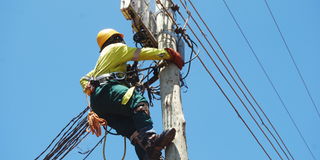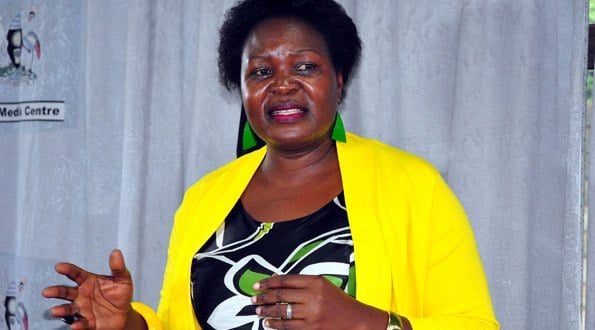Prime
Rural electrification policy performing dismally - report

The dismal connections are a threat to increased power access. PHOTO | file
What you need to know:
Out of the 97,000 annual planned connections, Rural Electrification Agency only realised 3,683 during the period ended June 2021.
Rural electrification suffered gross underperformance for the period ended June 2021, threatening government’s agenda to grow electricity consumption.
The “dismal performance” according to Auditor General John Muwanga, “is likely to fail the intended objectives of the Electricity Connections Policy.
The policy, funded by government, subsidises electricity connections with the agenda to increase access.
During the period between June 2020 and June 2021, according to a report by the Auditor General, Rural Electrification Agency (REA), which implements the Electricity Connections Policy, had challenges in implementing the policy only managing to connect 3.7 percent of the targeted connections.
For instance, the report noted, as of June 30, 2021, REA had only connected 3,683 or 3.7 percent out of the 97,000 annual planned connections.
Government’s planned annual connections are informed by a number of factors, among which include stock of electricity supply, development data and rate of urbanisation.
The Electricity Connections Policy also feeds into the need to expand electricity access, which, according to the Uganda Bureau of Statistics National Household Survey 2019/20 fell from 22 percent to 19 percent, amid an increase in generation against low demand.
Electricity generation has increased in the last 10 years with installed generation capacity growing to 1237.49 megawatts as of October 2020 against demand of under 800 megawatts.
However, yesterday, Dr Patricia Litho, the head of communications at Ministry of Energy, which supervises the implementation of the Electricity Connections Policy, said that whereas the connections were below target, the Auditor General report was misleading because it did not capture other connections that were going on across the country besides the policy.
For instance, she said, Umeme and other service providers were connecting under the policy, noting that there has been overwhelming demand, amid funding challenges.
“To connect households is not done blindly because electricity is run on safety,” she said, noting that whereas some households are within access they have not fulfilled certain requirements including professional wiring.
The policy, just like other sectors of the economy, she said was disrupted by Covid-19, which made procurement of certain equipment difficult.
The Electricity Connections Policy, which is implemented through both government and private sector companies involved in electricity distribution, has previously faced challenges among which include withdrawal of funding by the World Bank over concerns such as dismal performance, failure to achieve intended targets, corruption and use of substandard equipment.
In 2019, the World Bank, which was the principle funder of the Electricity Connections Policy, withdrew funding from the project, forcing government to suspend the policy.
However, it was later reinstated after a public outcry with government promising to mobilise resources to fund the policy.
Before lifting the suspension, the cost of connection, had spiked from an average of Shs20,000 for inspection, to Shs720,883 for a no pole connection, Shs2.3m for one pole bare conductor and Shs2.7m for pole with insulated conductor connection, making the cost unaffordable for most rural folks.
The policy has since failed to take off, with a number of implementing companies showing reluctance to connect applications whose financing has not been released.
Challenges at Rural Electrification Agency
The Auditor General also noted other challenges facing the Electricity Connections Policy, among which include a growing bill of outstanding compensations for the landowners of way leaves amounting to Shs8.67b.
Rural Electrification Agency, the report noted, is also faced with a contingent liability of Shs19.73b in relation to way leaves cases yet to be disposed of.
“I further noted that REA had Shs3.29b as an outstanding amount in court awards due to delayed payment of retention, nonpayment for work done, unlawful dismissal and non-renewal of employment contracts,” Mr Muwanga said in the report.




